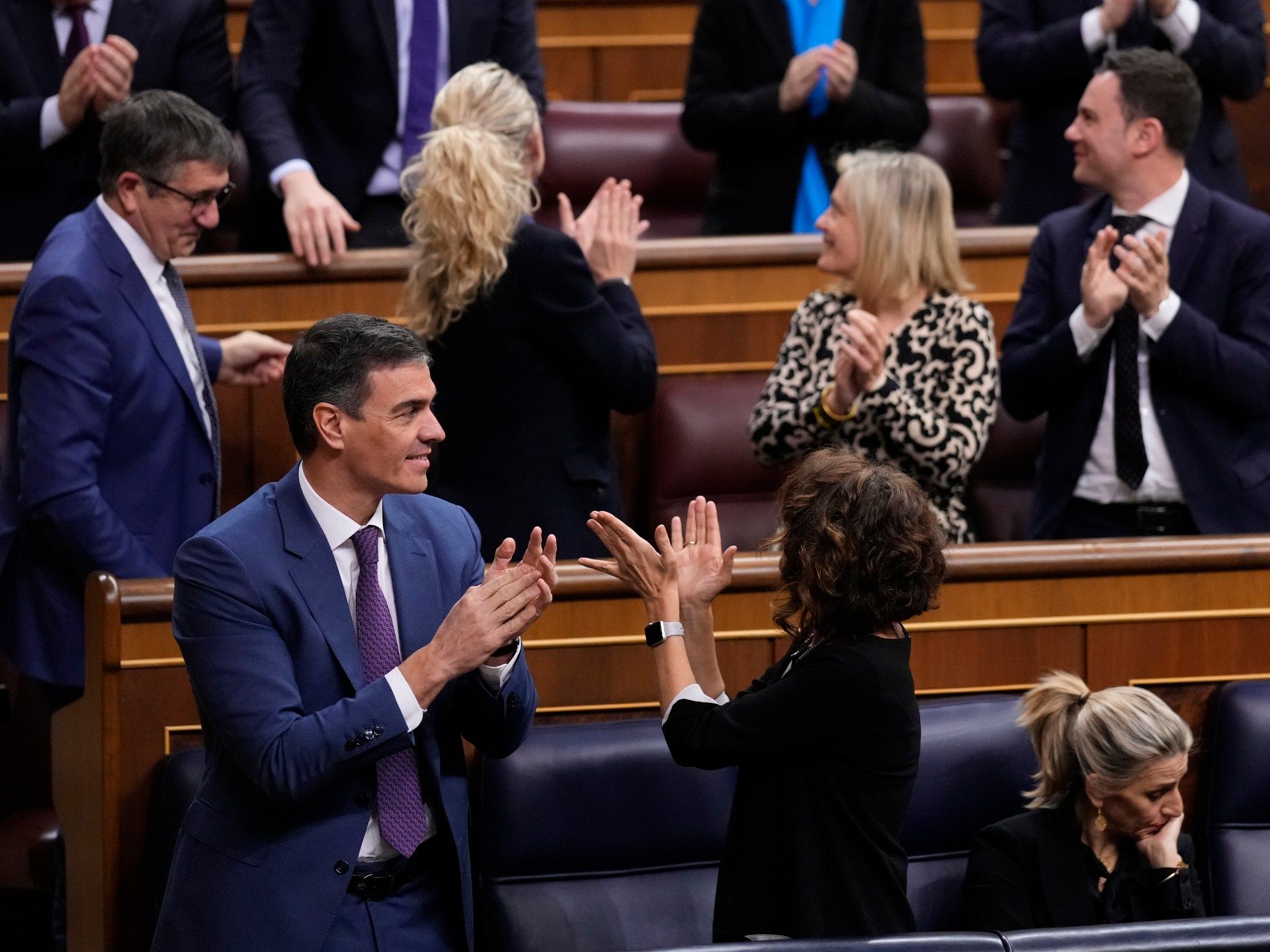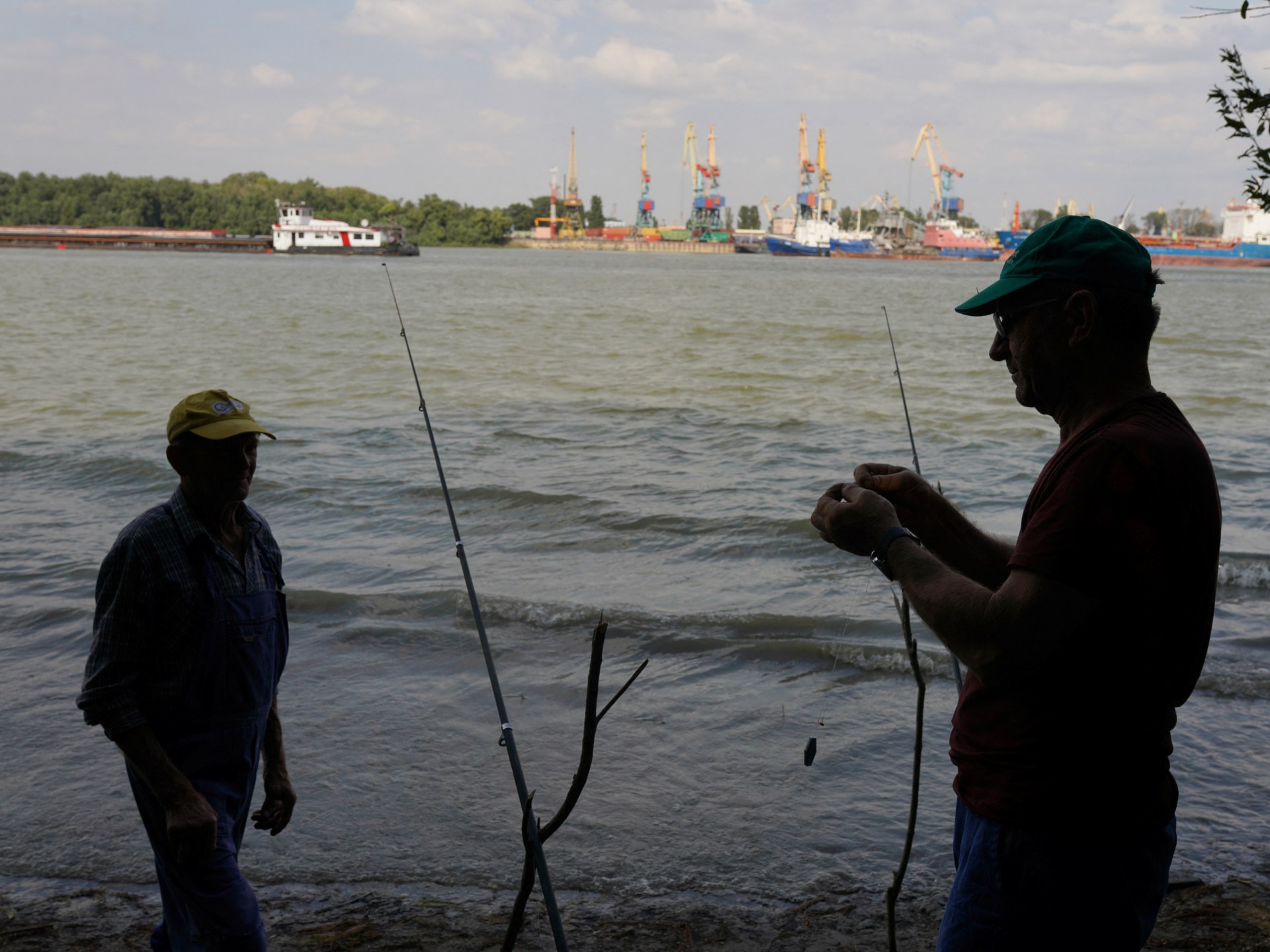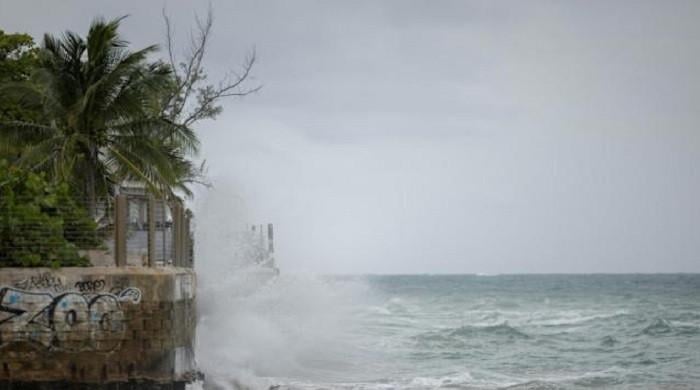The lower house of Spain's parliament approved an amnesty bill aimed at pardoning crimes – proven and alleged – committed by Catalan separatists during a chaotic attempt to hold an independence referendum in the region six years ago.
The deputies voted on Thursday 178 in favor and 172 against in the 350-seat chamber.
Socialist Prime Minister Pedro Sánchez has promoted the amnesty as a way to overcome the 2017 secession attempt.
However, the bill has also been opposed by millions of Spaniards who believe the people who caused one of Spain's biggest political crises should face charges, including embezzlement and promoting public disorder.
Sánchez has already pardoned nine imprisoned Catalan independence leaders, a move that helped heal wounds at little political cost. But the amnesty is proving much more divisive.
secession attempt
The secession crisis erupted when a regional administration headed by Carles Puigdemont organized a referendum on independence, defying orders from the national government and a ruling by Spain's highest court that doing so violated the constitution.
Madrid sent in the police to try to stop the referendum and protests against the police deployment turned violent. Some polling stations could not open.
The referendum passed, but turnout was low, at 43 percent. Almost four weeks later, on October 27, 2017, the Catalan Parliament declared independence, but the declaration failed to gain any international support. Puigdemont and several other senior officials subsequently fled Spain.
Hundreds or thousands of people in Catalonia face the threat of prosecution in connection with the referendum or protests, and Puigdemont and other leaders remain abroad.
Recent judicial investigations have accused the former regional president of allegedly organizing mass protests in which protesters clashed with police and which closed roads, train lines and Barcelona airport in 2019.
Sánchez, a member of the Socialist Workers Party, accepted the amnesty to secure the support of two Catalan separatist parties after an inconclusive national election in July turned them into kingmakers.
The conservative opposition accuses Sánchez of selling the rule of law in exchange for another mandate in the Moncloa Palace. He has organized street protests in recent months.
A 'reconciliation' that turns the page
The parliamentary spokesperson for the Socialists, Patxi López, defended the bill on Thursday as a measure to seek “reconciliation” with Catalonia.
The opposition leader of the Popular Party, Alberto Núñez Feijóo, responded by saying: “This is not reconciliation but submission.”
It was unclear whether the deal would add stability to Sánchez's minority government. Junts, a separatist party led by Puigdemont, said it would vote for Sánchez to form a government in exchange for the amnesty and nothing more.
The bill still faces a number of procedural hurdles. The Senate, which has a conservative majority, is expected to reject it, which would mean the lower house of parliament would have to vote on it a second time to move it forward.
Sánchez's party had difficulty drafting a bill that would satisfy the separatists. If passed, the legislation is sure to come under intense scrutiny by the courts.
Parliament, including Sánchez's party, rejected an earlier version of the legislation in January when Junts said it did not do enough to protect Puigdemont. The bill then returned to a parliamentary committee, which amended it to suit Junts' needs.
Puigdemont now lives in Belgium, where he has become a member of the European Parliament. A fugitive from Spanish justice, he calls himself a political exile.
Early elections
Thursday's vote comes a day after Catalonia's regional leader called early elections.
That decision added more uncertainty to Spanish politics and led Sánchez to cancel plans for a 2024 budget due to the difficulties he would have had in trying to win the support of the two separatist parties during the electoral period.
Spain granted a broad amnesty during its transition back to democracy after the death of dictator Francisco Franco in 1975.
But legal experts are divided over the constitutionality of an amnesty for Catalan separatists. Its legal critics said it violates the principle of equality among Spaniards by favoring those of a region.
The government said the amnesty could help hundreds of people, while the Catalan pro-independence organization Omnium Cultural said it should benefit about 4,400 people, mostly minor officials and citizens who helped organize the referendum or participated in the protests.
The courts would decide the application of the amnesty on a case-by-case basis.












